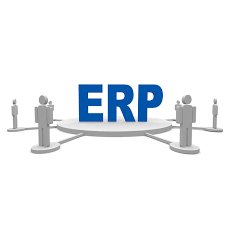ERP Implementation Basics
- 2W Technologies
- Enterprise Resource Planning
- Epicor
- Epicor 10
- Epicor 10.1
- Epicor 9
- Epicor Best Practices
- Epicor Buffalo
- Epicor Chicago
- Epicor Cleveland
- Epicor Consultant
- Epicor Detroit
- Epicor Erie
- Epicor ERP
- Epicor ERP 10
- Epicor ERP 10.1
- Epicor ERP Consultant
- Epicor ERP System
- Epicor Illinois
- Epicor Implementation
- Epicor Indiana
- Epicor Indianapolis
- Epicor Meadville
- Epicor Milwaukee
- Epicor New York
- Epicor Ohio
- Epicor Partner
- Epicor Pennsylvania
- Epicor Pewaukee
- Epicor Saint Louis
- Epicor St. Louis
- Epicor Upgrade
- Epicor Wisconsin
- ERP
- ERP Consultant
- ERP Deployment
- ERP Implementation
- ERP Installation
- ERP integration
- ERP System
- ERP training
- ERP Upgrade
- Upgrade Epicor
- Upgrading Epicor
- Upgrading ERP
ERP systems have changed by leaps and bounds in the last several years. What used to be standard on premise delivery model, that model is only 1 of the choices. Most vendors have released several new versions of their software in the last few years. These are just a few things that have changed in the last few years. I am sure top vendors have switched positions, companies have merged or been bought out, a few are probably out of business, etc….. With more and more ERP solutions available, it’s not always easy to determine the right factors to consider when choosing which ERP solution will be best for your own business. The basics on what tips an organization should follow for a successful ERP implementation is one thing that has remained constant.

- Understand your company goals. Someone in your organization recognized the need for an ERP system. Especially with larger organizations, it’s difficult to circulate a full understanding of why this new system is needed and what you need it to accomplish. Having a complete understanding of your business processes should be done early in the selection process and then next should be identifying the areas of improvement you are looking to correct with a new system. These improvements may include eliminating duplicate data entry and repetitive tasks, improving data sharing and inter-departmental communication, better forecasting, and just overall better production processes. Once you define your project scope, and only then, you should move on to the system and vendor evaluation.
- System and Vendor Selection. Finding the right system and vendor requires time, patience, and lots of research. The key here is to select a system that best fits your project scope and specializes in your industry. Ideally, your system will be an almost absolute fit, keeping your customizations to a minimum. When looking at vendors, pick someone who best fits with your organizations personality and has the expertise to fill the holes your staff may not be able to fill. Make sure you ask for references for both the system and the vendor.
- Test drive. Before you go live, test drive your system, including each and every component to make sure it isn’t going to cause errors or bugs, or an entire system crash. It is important to document every step of the way, including what testing was done, what processes were run, and what the results were. This is going to help in the future with employee training and bringing on new employees as well. Your documentation also allows you to compare the new ERP system with what you were running in the past. Make sure you pull a variety of users from a variety of departments to test out the system. This will not only give you more thorough training, but will also help you understand where different users are with the learning curve.
- Embrace your new system and the changes. Implementing a new ERP system is a big project and it is going to require an adjustment period. Your users are going to need training, both at the onset, as well as ongoing training throughout the life of the ERP system. Processes as you currently know them are going to need modified, so there will need to be adjustments made, documentation that needs to happen, and repetition with the users until the new processes seem like second nature to them. Management will need to lead the charge on embracing this major change and leading by example. Don’t let your users slip back into old habits. You implemented a new ERP system for a reason, push to get the results you were expecting.
ERP systems are meant to help companies improve processes, communication, and much, much more. They take a large amount of resources, both in dollars and time, and your organization needs to give it the time and attention needed to make your ERP implementation a success. 2W Tech is a certified Epicor ERP partner and has the expertise needed to help your organization ensure your next EPR project goes off without a hitch. Give us a call today and let’s get started on your ERP implementation.
Read More:
Epicor ERP Takes Steps to Prepare for Industry 4.0
IT Project Failures: Ineffective Planning
Best Practices for ERP Success Whitepaper
Enjoyed reading this article? Click the button below to download this asset.
Download “Best Practices for ERP Success” Now
Best Practices for ERP Success Whitepaper
Please complete the form to download the file.